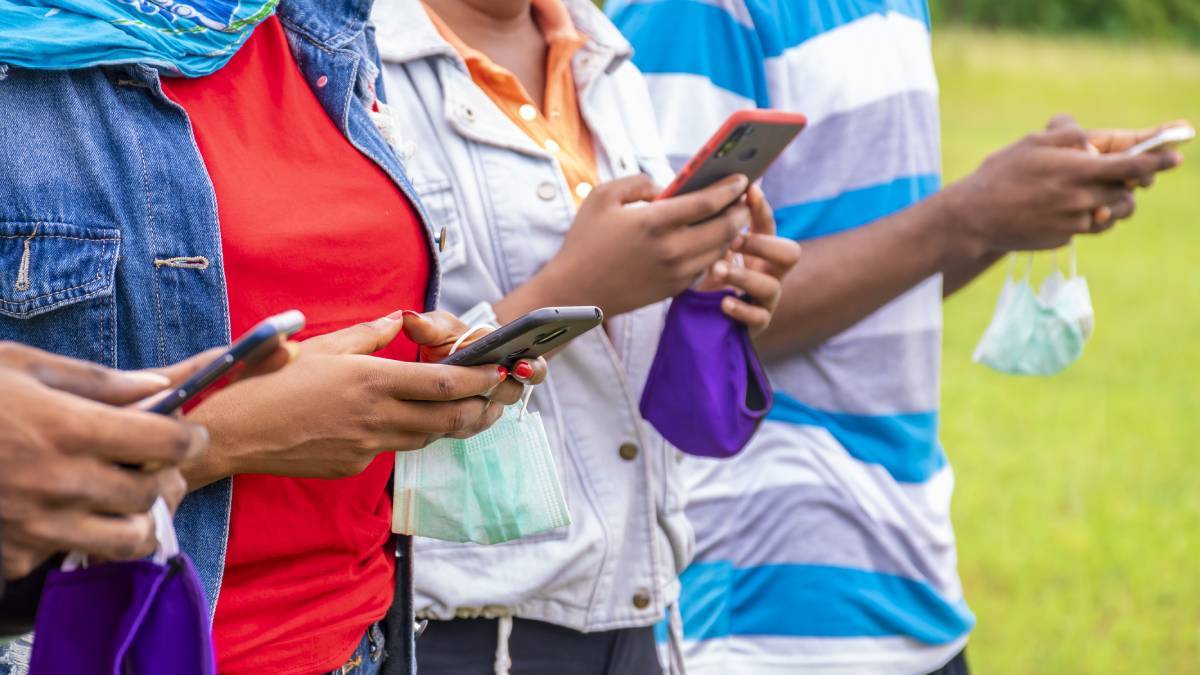ITU plans to bridge smartphone access gapITU plans to bridge smartphone access gap
The ITU and UNESCO's Broadband Commission for Sustainable Development have published a report that proposes solutions to the global lack of Internet access.

Around 2.7 billion people globally still cannot or do not access the Internet – which means a third of the population does not have access to critical information and opportunities.
This is according to a new report from a Working Group on Smartphone Access put together by the International Telecommunication Union (ITU) and UNESCO's Broadband Commission for Sustainable Development.
The report, called Strategies Towards Universal Smartphone Access, aims to provide practical tools for how people can have access to the Internet through a smartphone by 2030.
The report's working group was co-chaired by Vodafone Group CEO Nick Read, ITU Secretary-General Houlin Zhao as well as UN High Representatives for the Least Developed Countries, Landlocked Developing Countries and Small Island Developing States (UN-OHRLLS) Heidi Schroderus-Fox and Rabab Fatima.
The group also included representatives from the African governments of Benin and Ghana.
Closing mobile Internet gap
The study also looked at the adoption gap for mobile Internet – which arises when individuals do not use the Internet even when there is mobile network coverage in an area.
It found that the gap is now over seven times larger than the coverage gap globally – the gap is larger in South Asia, sub-Saharan Africa and the Middle East and North Africa.
UN-OHRLLS representative Rabab Fatima said only 45% of adults in emerging economies like Africa currently own a smartphone, compared to 76% in advanced economies.

(Source: Broadband Commission for Sustainable Development Report).
"Women are also significantly less likely than men to own a smartphone and use the mobile Internet if they live in low- and middle-income countries. Smartphones are not just consumer goods, they are accelerators for learning, connection and economic activity," she added.
"But with the cost of a smartphone exceeding 70% of the average monthly income of people living in low- and middle-income countries, enabling access and use to the Internet must now become a policy priority for the international community," she continued.
Fatima's stance is similar to a recent report by GSMA's Mobile Gender Gap Report 2022 which found that this figure has grown steadily from 22% in 2017, due to men's smartphone ownership far outpacing that of women in the region. However, once women own a smartphone, their awareness and use of mobile Internet is almost on par with men.
The Strategies Towards Universal Smartphone Access report found that limited affordability and availability of smartphones, along with low consumer confidence, in part due to a lack of basic digital skills, are limiting Internet adoption.
The report, identified three interventions that will have the most immediate impact on smartphone adoption:
Increased use by telecom operators of flexible device financing models.
Reduced taxes and import duties.
Improved distribution models to make smartphones more accessible to rural communities.

(Source: Broadband Commission for Sustainable Development Report).
Alongside these measures the report recommended further investigation into the use of device subsidies and the re-use of pre-owned smartphones.
The Broadband Commission will create task forces to complete a five-point action plan resulting from its findings:
Initiate win-win partnerships with players across the digital value chain.
Improve recycling regulation and develop quality standards for pre-owned smartphones.
Develop strategies for recycling of mid- and low-tier devices.
Explore the use of Universal Service Funds and other government subsidies.
Further explore the economic benefits of reducing tax and import duties on smartphones.

(Source: Broadband Commission for Sustainable Development Report).
Want to know more about digital inclusion in Africa? Check out our dedicated Digital Inclusion content channel here on Connecting Africa.
"Access to the Internet, and smartphones, are critical enablers of jobs, education, healthcare, financial services and much more. We need focused partnerships between business, government and civil society to drive smartphone adoption, through the five actions we have identified, to ensure we enable the transformative benefits of Internet adoption for billions of people," concluded Vodafone Group CEO Nick Read.
*Top image source: Image by wirestock on Freepik.
— Matshepo Sehloho, Associate Editor, Connecting Africa
_(1).jpg?width=100&auto=webp&quality=80&disable=upscale)
_(1).jpg?width=400&auto=webp&quality=80&disable=upscale)
.jpg?width=700&auto=webp&quality=80&disable=upscale)
_(1).jpg?width=700&auto=webp&quality=80&disable=upscale)

_(1).jpg?width=700&auto=webp&quality=80&disable=upscale)
.jpg?width=700&auto=webp&quality=80&disable=upscale)
.jpg?width=700&auto=webp&quality=80&disable=upscale)
_(1).jpg?width=700&auto=webp&quality=80&disable=upscale)
.jpg?width=700&auto=webp&quality=80&disable=upscale)

.jpg?width=700&auto=webp&quality=80&disable=upscale)